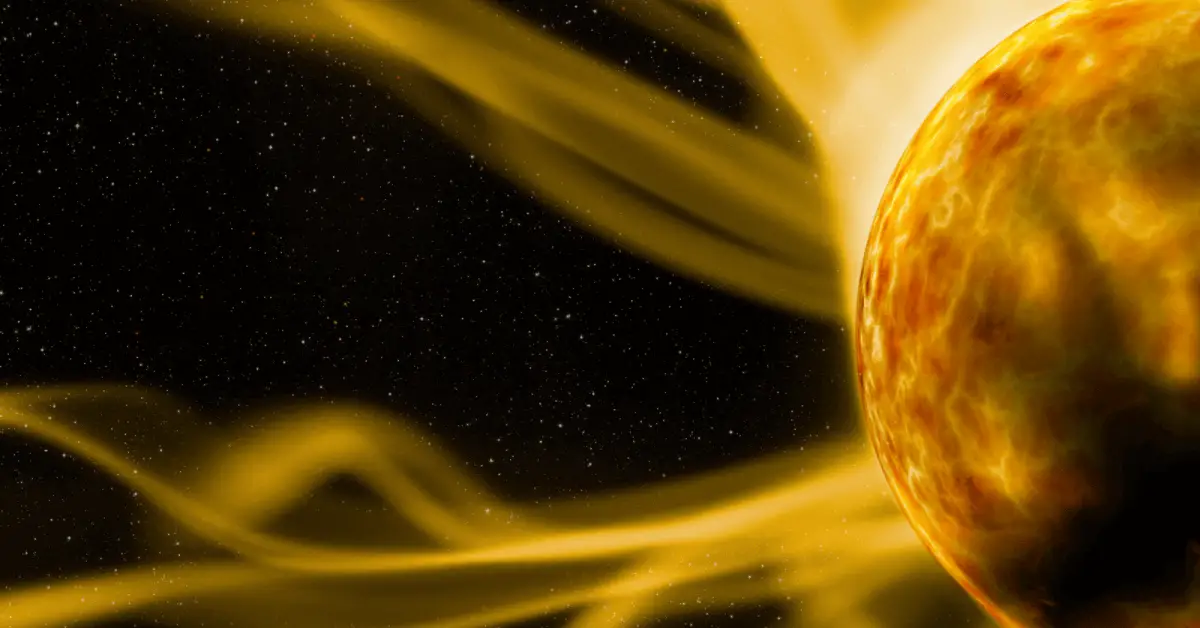- Solar flares are gigantic explosions of energy on the Sun’s surface that appear due to sudden release of huge amounts of energy accumulated inside the Sun, typically 1020 Joules which is enough to create a noticeable occasion.
- Tangling of magnetic field lines is the huge contributing factor in the formation of Solar flares. The bright spots on the surface of the sun, usually known as sunspots, contain high magnetic fields and hence become the reason for major solar bursts with more visibility.
- The energy release could be of various forms such as; magnetic energy and heat energy. They also release radiative energy.
- They are the major cause for the ejection of electromagnetic radiations including gamma rays and X-rays, moreover, flares also emit radio waves in large quantities.
- CME (coronal mass ejection) and solar flares, both were considered a reason for major explosions on the surface of the Sun in which intense explosive flares were mainly thought to be accompanied by CME, however, recent studies have shown that CME is mainly gas bubbles ejected from the sun and have nothing to do with solar flares.
- Solar Flares are classified as alphabetic letters A, B, C, M, X. All types of solar flares have different levels of strength such as; X-class are the major events, M-class are intermediate, whereas, C-class flares are considered as small ones which are slightly noticeable from Earth.
- The different intensities of the flares appear as:
| A level | 10-8 W/m2 |
| B level | ≥10-7 W/m2 |
| C level | 10-6 W/m2 |
| M level | 10-5 W/m2 |
| X level | 10-4 W/m2 |
🔬 Subscribe to SciMail
Get the latest science discoveries straight to your inbox!
- Since X-class flares are the largest types of flares, they create the most noticeable events and have the worst effects on the environment including disrupted global events, radio signals and long-lasting solar storms.
- M-class flares fall in the category of intermediate flares which do not create huge solar storms but cause minor radio blackouts.
- Flares can last up to several minutes or may be even hours. A solar flare is capable of moving at the speed of light and can appear in a powerful-law spectrum of magnitudes.
- Flares are harmful to the entire atmosphere of the solar system. They can severely damage layers of Solar atmosphere such as; photosphere, chromosphere etc.
- The fastest solar flare ejection can hit the Earth in one or more than one day. The fastest recorded speed is 1000 kilometres per second (620 miles).
- A solar flare is capable of releasing energy ten times more than a volcano on Earth and could be as hot as the sun’s core.
- In an 11-year cycle, the solar activities catch their peak and while the sun is at solar maximum it can release more than 100 solar flares in a week.
How Solar Flares Impact Earth And Humans?
- Solar Flares can affect the nature of Earth’s atmosphere in various ways. If a solar flare gets ejected in the direction of Earth, it would cause disturbance in the ionosphere of Earth (upper atmosphere of Earth). This disturbance in ionosphere causes aurora borealis (natural light display in Earth’s sky).
- Large storms can affect communication satellites and also releases energetic particles into space
- Earth’s atmosphere acts as a protective shield to humans, it is difficult for ejected radiations to reach humans nearer to the ground, however, most of the time people on aeroplanes and in outer space are at higher risk.
- The damages caused by solar flares include organ damage, cancer, radiation sickness etc.


Leave a Reply